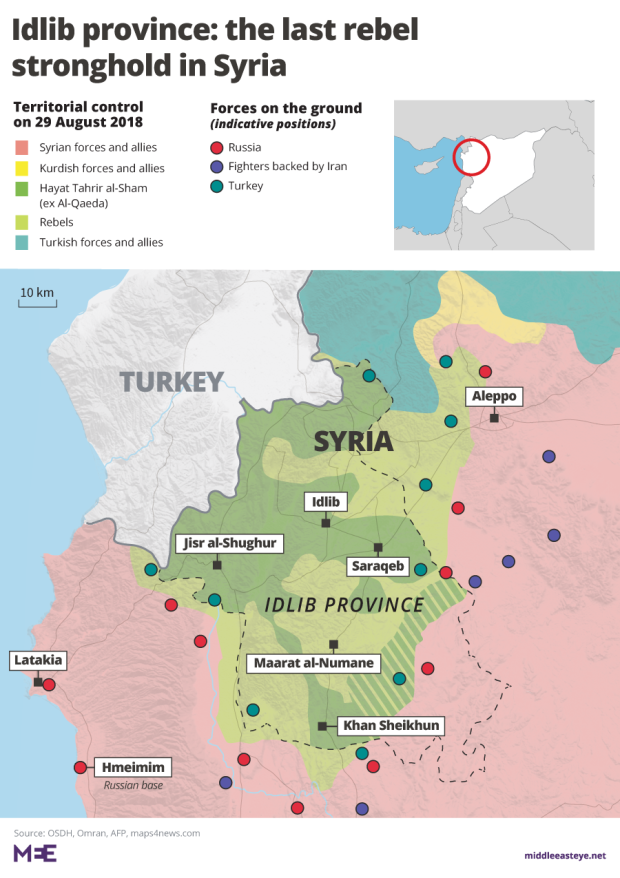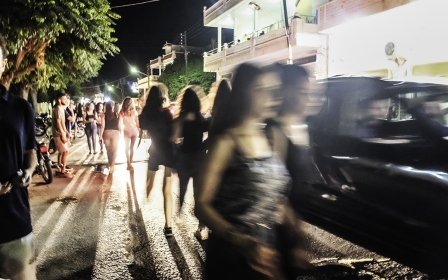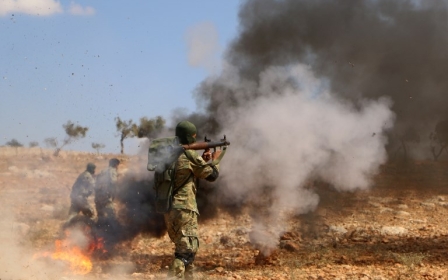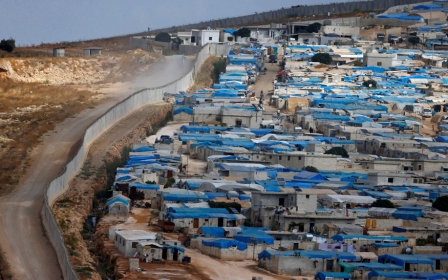Putin and Erdogan agree to create demilitarised zone in Syria's Idlib
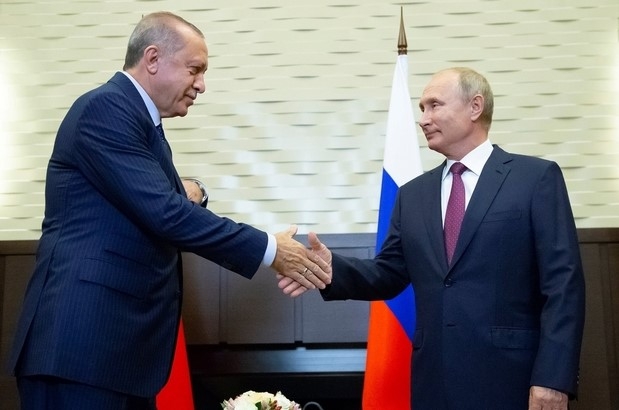
Russia said on Monday there will be no new military operation against rebels in Idlib by Syrian government forces and their allies after President Vladimir Putin met with his Turkish counterpart Recep Tayyip Erdogan.
The two leaders, who back opposing sides in Syria’s seven-year war, came together in an ad hoc meeting in the Russian resort city of Sochi as tensions grew over Idlib, the last major opposition bastion in Syria.
The Syrian government, backed by Russian air power, appeared recently to be poised to stage an assault on Idlib province, which is also home to thousands of hardline militants.
Putin said Moscow and Ankara agreed to create a 15-20 km demilitarised zone between rebels and Syrian government forces by 15 October.
Russian and Turkish forces will patrol the buffer zone. "Radically-minded" groups, including former al-Qaeda affiliate Hay’at Tahrir a-Sham (HTS), will withdraw from the zone, and heavy weapons held by Syrian rebels in Idlib city would be handed over by 20 October, according to the agreement.
This approach, Putin said, is supported by Syrian President Bashar al-Assad.
Translation: Our wish in Turkey and Russia is to solve the Syrian crisis according to the UN Security Council resolution 2254. We will keep our cooperation to achieve this goal.
Turkey's President Erdogan said that his country will carry out coordinated patrols in the demilitarised zone in Idlib with the Russians.
Turkey, which borders Idlib, supports some rebel groups there and has grave concerns over the effects of an operation in the province that holds some three million people.
Neither Putin nor Erdogan explained how they planned to differentiate "radically-minded" rebels from other anti-government groups. It was also not immediately clear how much of the city of Idlib fell within the zone.Russian Defence Minister Sergei Shoigu said after the meeting that there will be no new military operation against Syria's Idlib, Russia's Interfax news agency reported.
Yielding results
Erdogan and Putin met 10 days ago in Tehran alongside Iranian President Hassan Rouhani, where the Turkish leader publicly called for a ceasefire.
Turkish daily Hurriyet on Monday quoted Erdogan as saying he believed his words in the Iranian capital had had a positive effect.
"The situation in Idlib has been calm for three days. It looks like we obtained a result with the efforts which were made," the newspaper quoted the president as telling reporters on a flight back from Azerbaijan at the weekend. "But we are still not satisfied.”
The situation in Idlib has been calm for three days. It looks like we obtained a result with the efforts which were made
- President Recep Tayyip Erdogan
Turkey, with 3.5 million Syrian refugees, has already borne the "political and human burden" of the Syrian war and any new refugee flow would head for Turkey, Erdogan said.
The Turkish military has deployed at observation points across Idlib, and Ankara hopes to be given time to separate al-Qaeda-linked militants from the rebels it backs.
Reports on Monday said Turkey has recently sent its largest contingent of reinforcements to Idlib in weeks.
Hurriyet said they included tanks and some 50 military vehicles, which crossed the border and headed down to the Jisr al-Shughour area in the province’s south which recently witnessed an uptick of bombing by Syrian and Russian jets.
"Let's all take steps, measures together against the terror groups among the opposition in Idlib," Erdogan said according to Hurriyet. "But let's not create an excuse and take a step like bombing there."
New MEE newsletter: Jerusalem Dispatch
Sign up to get the latest insights and analysis on Israel-Palestine, alongside Turkey Unpacked and other MEE newsletters
Middle East Eye delivers independent and unrivalled coverage and analysis of the Middle East, North Africa and beyond. To learn more about republishing this content and the associated fees, please fill out this form. More about MEE can be found here.


